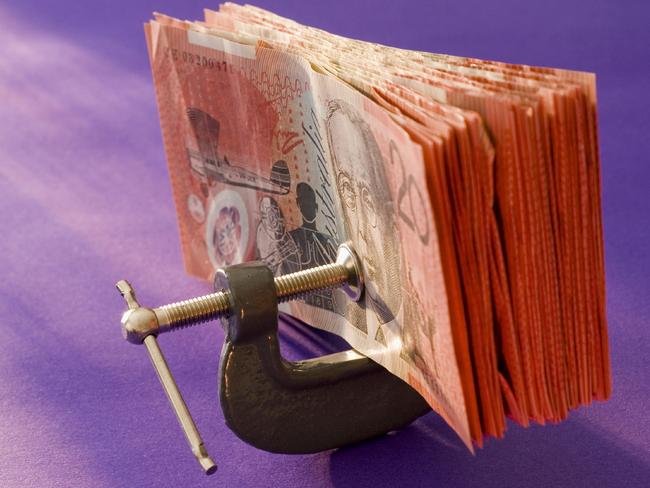Spot the signs of financial abuse
A LESSER-known form of domestic violence is financial abuse, and many victims may not think it’s happening to them.

FINANCIAL abuse is more common than most people think and many Australians may be victims without knowing it.
Almost all abusive domestic relationships contain an element of financial abuse, research shows, and a lack of financial literacy is making many women vulnerable.
A recent study by CoreData found that three out of five women hold no assets independently of their partner, putting them at financial risk from a breakup, manipulative relationship or a partner’s poor financial behaviour.
“Financial abuse is massively under-reported,” says Emma Rossi, a board director of women’s and children’s shelter Mary’s House.
“We have had refuges tell us they’ve had women and children arrive malnourished because their partner didn’t provide enough money for basic necessities such as food,” she says.
People’s Choice Credit Union CEO Steve Laidlaw says victims of financial abuse often face damaged credit histories, unstable employment and legal issues that make it difficult to be independent and safe.
“By taking control of all aspects of a person’s finances, an abuser can effectively trap someone in an abusive relationship — giving them no way to support themselves or their children if they leave,” he says.
“When we talk about domestic violence, we need to make sure financial abuse is part of the conversation as its prevalence, severity and impact are often overlooked.”
Victims can seek help by visiting whiteribbon.org.au or phoning 1800 RESPECT (1800 737 732).

Some people may not be sure if their partner is a financial abuser. Here are some of the key signs to look out for.
LIMITING YOUR SPENDING DECISIONS
Laidlaw says abusers often monitor purchases and demand that they authorise when and how money is spent.
RESTRICTING ACCESS TO FUNDS
Not allowing you access to bank accounts or credit cards, or not including you in investment or banking decisions, are signs of financial abuse. This can result in a partner running up huge debts.
CONTROLLING YOUR TECHNOLOGY
Online is the main way that many Australians bank and invest today, and a partner who controls the passwords and accounts may be an abuser. “The key word is control,” Rossi says. “What we find is people have control of your technology — they have access to your bank account details and money in your bank account. They can see what’s going in and what’s going out.”
ENFORCING AN ALLOWANCE
Adults should not be paid a meagre amount of pocket money by their partner.
Rossi says she hears of women receiving an allowance of just $50 to $100 a week to look after themselves and their children, even though they live in a huge house, with an expensive car, and the children go to a costly private school.
CONFIDENCE CRUSHED
Financial abuse can lead to “a diminishing of your self esteem so you no longer feel confident to handle basic financial matters”, Rossi says.
“In a lot of cases the perpetrator will isolate the victim from their usual support network, such as family and friends.”
CONTROLLING YOUR INCOME-EARNING CAPACITY
Laidlaw says abusers commonly use intimidation to keep someone from working, earning an income and having independence. Examples include sabotaging work opportunities or forbidding a partner to attend work-related training.



